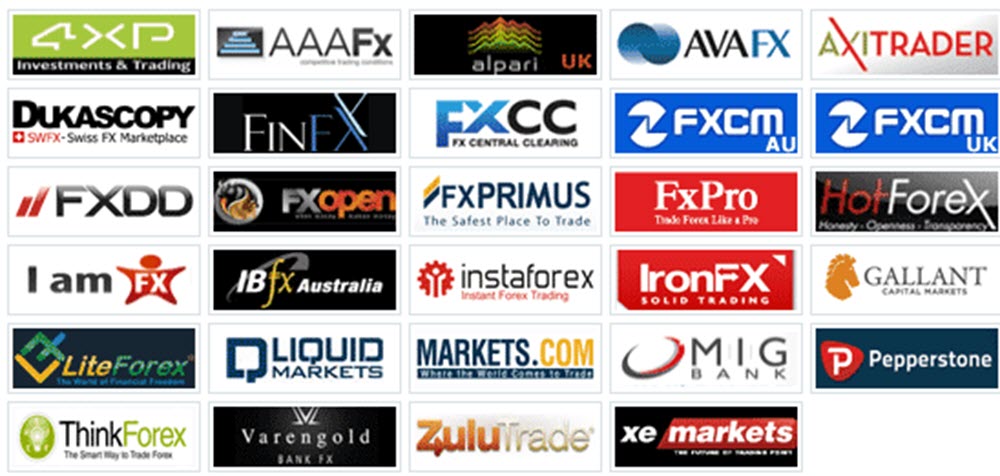Forex Brokers
The Foreign Exchange Market, colloquially known as Forex, is a global marketplace for trading currencies. As the largest financial market in the world, Forex trading can be highly lucrative, but it requires judicious decision-making and astute choices, particularly when selecting a broker. This article provides a comprehensive guide on choosing a forex broker that aligns with your trading goals and preferences.

Understanding the Role of a Forex Broker
What is a Forex Broker?
A Forex broker is an intermediary between retail traders and the interbank forex market. They provide traders with access to a trading platform to buy and sell foreign currencies.
Why is Choosing a Reputable Broker Crucial?
Your chosen broker is your gateway to the markets and thus significantly affects your trading experience and performance. A reputable broker provides a stable and efficient trading environment and safeguards your capital.
Factors to Consider When Choosing a Forex Broker
Regulatory Compliance
First and foremost, ensure that the broker complies with regulatory standards and is registered with relevant authorities. This not only ensures the legitimacy of the broker but also provides a degree of protection to your funds.
Trading Platform and Technology
A robust trading platform is essential for a seamless trading experience. Opt for a broker that offers a user-friendly platform with an intuitive interface, advanced charting tools, and a wide range of technical indicators.
Costs and Fees
Understand the costs associated with trading through a particular broker. This includes spreads, commissions, and any other fees. While competitive pricing is desirable, it should not compromise the quality of service.
Account Types and Leverage
Different brokers offer varied account types, often categorized by trading volume, initial deposit, and features. Moreover, brokers may offer leverage, which allows you to trade larger positions than your capital would allow. Assess your trading style and preferences to choose an account type and leverage level that suits you.
Execution Speed and Reliability
In the fast-paced world of forex trading, execution speed is critical. A broker who can execute trades with minimal slippage ensures that you enter and exit the market at your desired levels.
Customer Service
Exceptional customer service is essential, particularly in a market that operates 24 hours a day. A broker with a responsive and knowledgeable customer support team can be invaluable in addressing issues and queries.
Conducting Due Diligence

Broker Reviews and Reputation
Invest time in researching and reading reviews about the brokers you are considering. Gaining insights into other traders’ experiences can be revealing.
Testing the Waters with a Demo Account
Before committing to a broker, it is advisable to open a demo account. This will allow you to familiarize yourself with the trading platform and assess the broker’s services without risking real capital.
Understanding the Terms and Conditions
Review the broker’s terms and conditions thoroughly. Pay close attention to withdrawals, margin requirements, and dispute resolution policies.
Arriving at an Informed Decision
Having considered the array of factors and conducted due diligence, it is incumbent upon the trader to synthesize this information and arrive at an informed decision. Selecting a forex broker is significant and should be approached with discernment and prudence. Ultimately, the chosen broker should be aligned with your trading goals, risk tolerance, and preferences. By making a well-informed choice, you will have laid the foundation for a productive and fulfilling trading journey in the Forex market.
Adaptability and Future Prospects
Ultimately, the chosen broker should also be adaptable to the ever-evolving financial markets and offer prospects for growth and diversification. This includes updating their trading platforms with the latest features, expanding their financial instrument offerings, and adapting to regulatory changes. This adaptability is a testament to the broker’s commitment to providing traders with the tools and services needed to thrive in the dynamic world of Forex trading.
Fostering a Successful Trading Experience
With a reputable and well-suited broker as your ally, the focus should shift towards developing effective trading strategies, maintaining disciplined risk management, and continuously expanding your knowledge and skills. Remember that while the choice of a broker is fundamental, your trading decisions, mindset, and diligence are equally influential in shaping your trading career.
Continuous Assessment
It’s also important to periodically assess the services and offerings of your chosen broker, as your trading needs and market conditions may change over time. Be open to re-evaluating and, if necessary, changing brokers to ensure that your trading environment remains conducive to achieving your objectives.
Staying Informed
Stay informed about industry standards, emerging technologies, and regulatory changes that may impact your trading. Engage with trading communities, participate in webinars, and read industry publications.